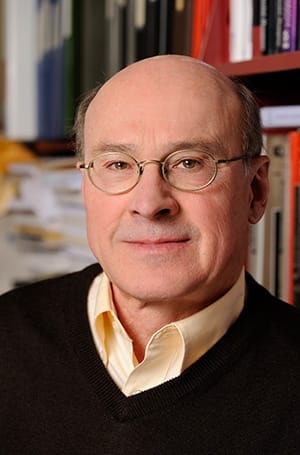
Darrell F. Strobel
Academy Co-Chair | Professor of Earth and Planetary Sciences, Physics and Astronomy; PhD, Harvard University
He is an expert in planetary atmospheres and astrophysics with a PhD in applied physics from Harvard, Docteur Honoris Causa, Observatoire de Paris; recipient Gerard P. Kuiper Prize, American Astronomical Society-Division for Planetary Sciences; American Geophysical Union fellow/3 sections; International Academy of Astronautics, member; Co-Investigator: Voyager Mission, New Horizon Pluto Mission, Space Shuttle (Atlantis-66) MAHRSI Instrument; Cassini Huygens Mission Interdisciplinary Scientist; and author of about 300 journal articles and book chapters. He started his career as a physicist at Kitt Peak National Observatory, Tucson, and then at the US Naval Research Laboratory, Plasma Physics Division before joining JHU in 1984.
Current Interests: Research, planetary atmospheres, outer solar system; Collaboration with current and former students, postdocs, colleagues on telescope observations by HST, JWST, ALMA.
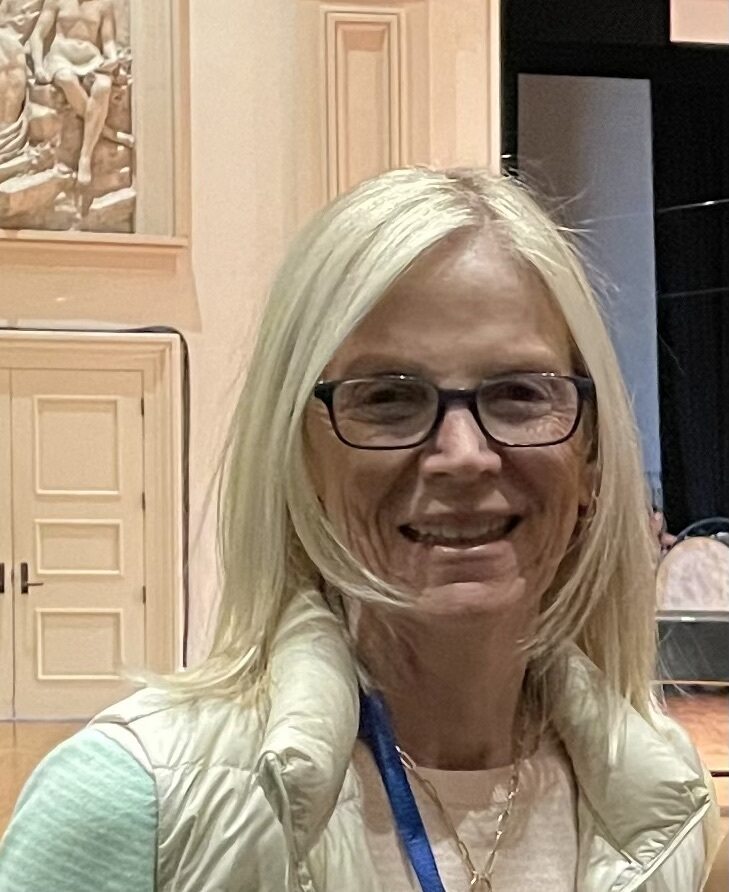
Susan Forscher Weiss
Academy Co-Chair | Professor Emerita, Musicology and Modern Languages
Susan Forscher Weiss is Professor Emerita, Musicology and Modern Languages. Among her scholarly interests are pedagogy, organology, iconography, prosopography, and musical theatre. Her publications include articles in national and international journals, chapters in peer-reviewed books and scholarly monographs and edited volumes on musical learning and on the life and works of Cole Porter. She is the recipient of numerous awards and grants and has served on several boards. In 2014 she was Robert Lehman Visiting Professor at the Harvard Center for Renaissance Studies at Villa i Tatti, and in 2019 was a Visiting Professor at Princeton University.
Current Interests: Mentoring and Coordinating speakers for talks.
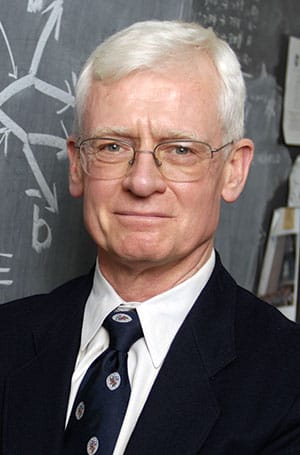
Bruce Barnett
Professor of Physics and Astronomy; PhD, University of Maryland
Bruce Barnett is a professor in the Department of Physics and Astronomy of the Johns Hopkins University. His current research is high energy proton-proton collisions within the CMS experiment at the CERN Large Hadron Collider (LHC). Over the years, he has taught a large variety of courses at both the undergraduate and graduate level.
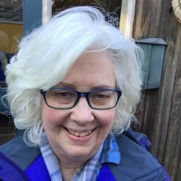
Karen Beemon
Professor of Biology; PhD, UC Berkeley
Dr. Beemon began working on retroviral genomes as a graduate student of Molecular Biology at UC Berkeley. As a postdoc at the Salk Institute, she initiated study of the product of the viral src oncogene, the first tyrosine kinase. She began at JHU as an Assistant Professor of Biology in 1981. She continued study of retroviruses, focusing on regulation of RNA splicing, export from the nucleus, and avoidance of nonsense-mediated degradation (NMD). She also studied oncogenesis by avian viruses without oncogenes; these integrate into host DNA and activate nearby host genes, including a long non-coding RNA in the TERT promoter.
Current Interests: Mentoring.
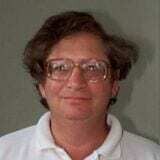
Barry Blumenfeld
Professor of Physics and Astronomy
After receiving his Undergraduate degree from MIT, he went to Columbia University
where he worked with Leon Lederman. For his Ph.D. research he moved to CERN, Geneva, Switzerland in 1971 to work at the world’s first hadron collider. Receiving his Ph.D. in 1974, he stayed at CERN until moving to Johns Hopkins in 1979. While on the Hopkins Faculty, he worked on various Physics experiments, including two at electron-positron colliders, two neutrino oscillation experiments and a proton-antiproton collider. He is now a Research Professor at Hopkins and still involved in the world’s largest hadron collider at CERN.
Current Interests: Colliders, Neutrinos, Distributed Computing
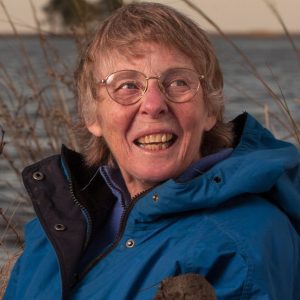
Grace S. Brush
Professor Emerita, Environmental Health and Engineering; PhD, Harvard University
Education: B.A. in Economics St. Francis Xavier University, Antigonish, Nova Scotia (1949); M.S. in Botany, University of Illinois, Urbana (1951); PH.D. in Biology, Harvard University (Radcliffe College) (1956).
Employment: Laboratory technician, Geological Survey of Canada 1949 to 1950; assistant professor part time University of Iowa and Rutgers University and part time research scientist Princeton University (1958-1969), research scientist (1974-1994) and full professor with tenure (1994-2089) Johns Hopkins University.
Research: My research has focused on the natural forests of Maryland, the urban forests of Baltimore, and the paleoecological history of the Chesapeake Bay ecosystem.
Current Interests: Writing a book on the History of the Chesapeake Ecosystem
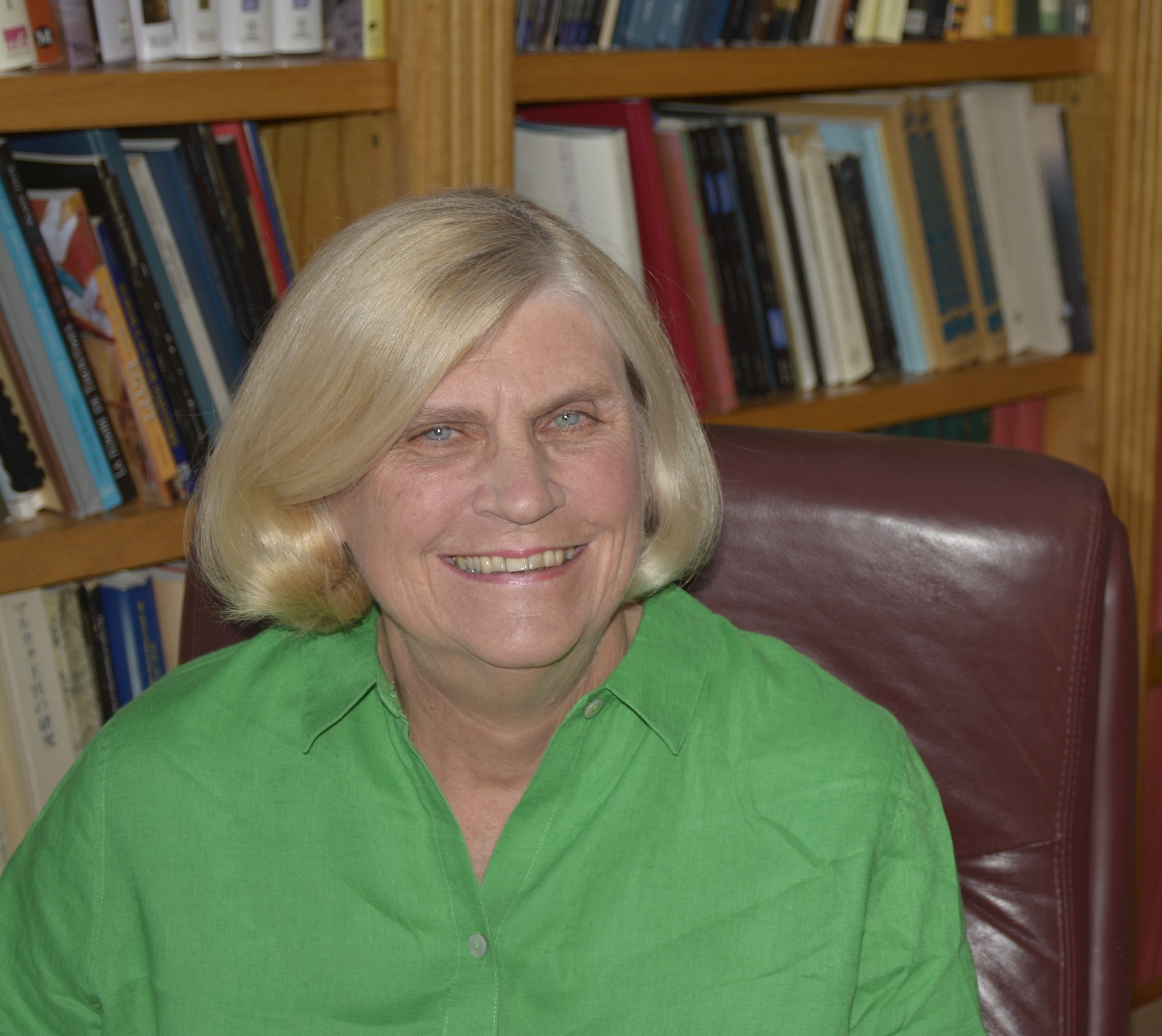
Betsy M. Bryan
Alexander Badawy Professor Emerita, Egyptian Art and Archaeology, Near Eastern Studies; Professor of History of Art; PhD, Yale University
Betsy M. Bryan received her doctorate from the Department of Near Eastern Language and Literatures at Yale University in 1980 and after editing and research work at the Brooklyn Museum came to Johns Hopkins as Assistant Professor in 1986, taking a newly endowed position of the Alexander Badawy Chair in Egyptian Art and Archaeology. She has specialized in the history, art, and culture of the 18th Dynasty (ca. 1550 to 1300 B.C.E.) and overseen some thirty PhD students. Since 2001 she has directed the JHU Archaeological Expedition to the Temple of the Goddess Mut at South Karnak in Egypt. She is currently working on the full publication of that long term project, as well as several shorter art historical articles.
Current Interests: Teaching Egyptian Language, Mentoring PhD Students, Advising for JHU Archaeological Museum
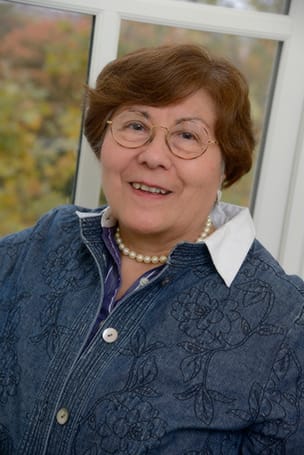
Sara Castro-Klarén
Professor of Spanish and Latin American Culture and Literature; PhD, UCLA
Professor Castro-Klaren earned her Ph.D. at the University of California (UCLA) in 1968. Before coming to JHU as Professor of Latin American Culture and Literature she taught at Dartmouth College and Georgetown University. She has been a pioneer in cultural studies, the interdisciplinary study of Latin America’s rich intellectual and literary culture and feminist studies. Her work includes books on major writers such as Jose Maria Arguedas and Mario Vargas Llosa. She has published essays on Diamela Eltit, Julio Cortazar, Guaman Poma and the Inca Garcilaso with an emphasis on the question of the inversion of epistemologies and the trenchant search for different ways of knowing. Her research has been published in major journals and presses in both English and Spanish. She has also opened up fields of research such as the poetics of archeology, subaltern knowledges and the epistemological-affective search for the sensory web that ties humans to animals and plants in her work of Arguedas, Hudson and Cortazar. At the moment she continues work on the relation of the poetics of archeology and the rise of the nation.
Current Interests: Publishing and Research.
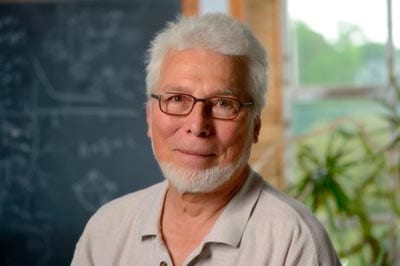
Richard Cone
Professor Emeritus, Biophysics; PhD, University of Chicago
As an assistant professor of biology at Harvard University, he taught physiology in an introductory biology course, Nat. Sci. 5, led by George Wald and pursued research on photoreceptors, the rods and cones of our eyes. In 1969, he chose to join the Biophysics Department at Johns Hopkins, where his research on the rapid diffusion of rhodopsin in photoreceptors led to the Cole award from the Biophysical Society.
Cone Lab
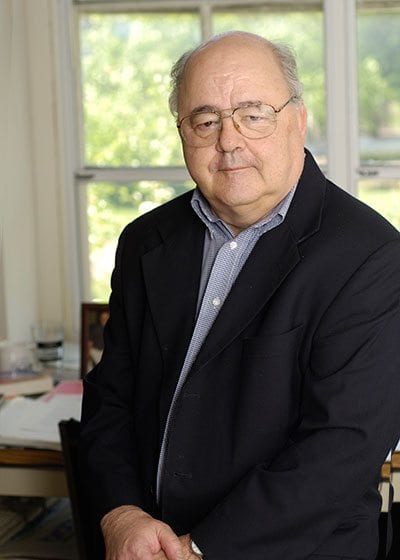
Matthew Crenson
Professor Emeritus, Political Science; PhD, University of Chicago
Professor Crenson is a Baltimore native who graduated from City College. He earned his B.A. at Johns Hopkins and an M.A. and PhD from the University of Chicago. He has been a faculty member at Johns Hopkins since 1969. He has served as Department Chair, Associate Dean and Acting Dean of the School of Arts and Sciences, and faculty director of the Baltimore Scholars program. He is the author or co-author of eight books dealing with issues of urban and national politics, the most recent of which is Baltimore: A Political History (2017).
Current Interests: Reading, Research, Lecturing, Writing.
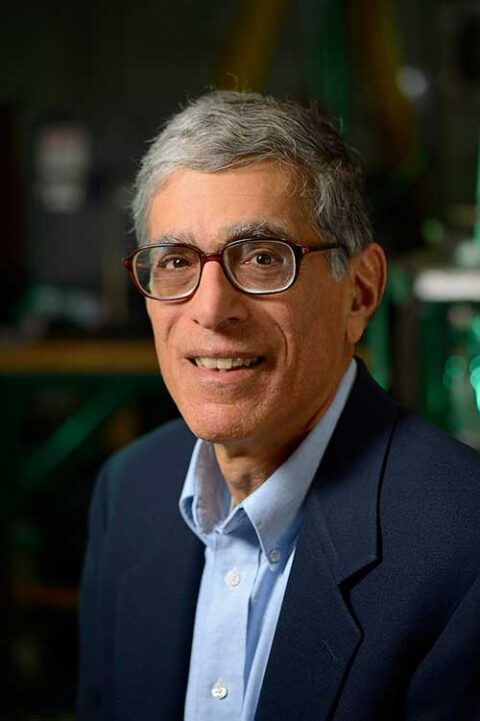
Paul Dagdigian
Professor Emeritus, Chemistry; PhD, University of Chicago
Paul J. Dagdigian received his undergraduate education at Haverford College and did his Ph. D. dissertation in physical chemistry at the University of Chicago. He began his academic career in 1974 at the Department of Chemistry at Hopkins, where he was Arthur D. Chambers Professor of Chemistry and served as department chair over 1998-2005. Professor Dagdigian has employed laser spectroscopic techniques for the study of the dynamics of gas-phase collisional processes and for the sensitive detection of trace concentrations of molecules such as explosives. In recent work, Dagdigian has also been investigated molecular collisions through calculations of the relevant cross sections and rate constants.
Current Interests: Academy co-chair, 2022-2023 and 2023-2024 academic years. Continuing work on molecular collisions.
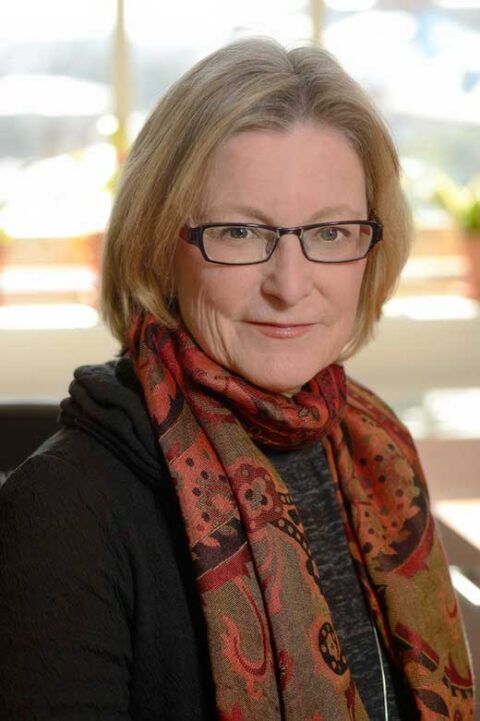
Toby Ditz
Professor Emerita, History; PhD, Columbia University
Toby Ditz received her PhD in Sociology from Columbia University in 1982. She came to Johns Hopkins University as an Assistant Professor in the same year and has remained at Johns Hopkins until her retirement in 2018. Her main specialties are early American history/Atlantic history and the history of women and gender. She has published on inheritance, family life and the commercialization of agriculture; the culture of manhood and risk among eighteenth century transatlantic merchants; and race, manhood, and citizenship. Just before retiring she became interested in local public history.
Current Interests: Police Reform Legislation, Local Public History, Birding
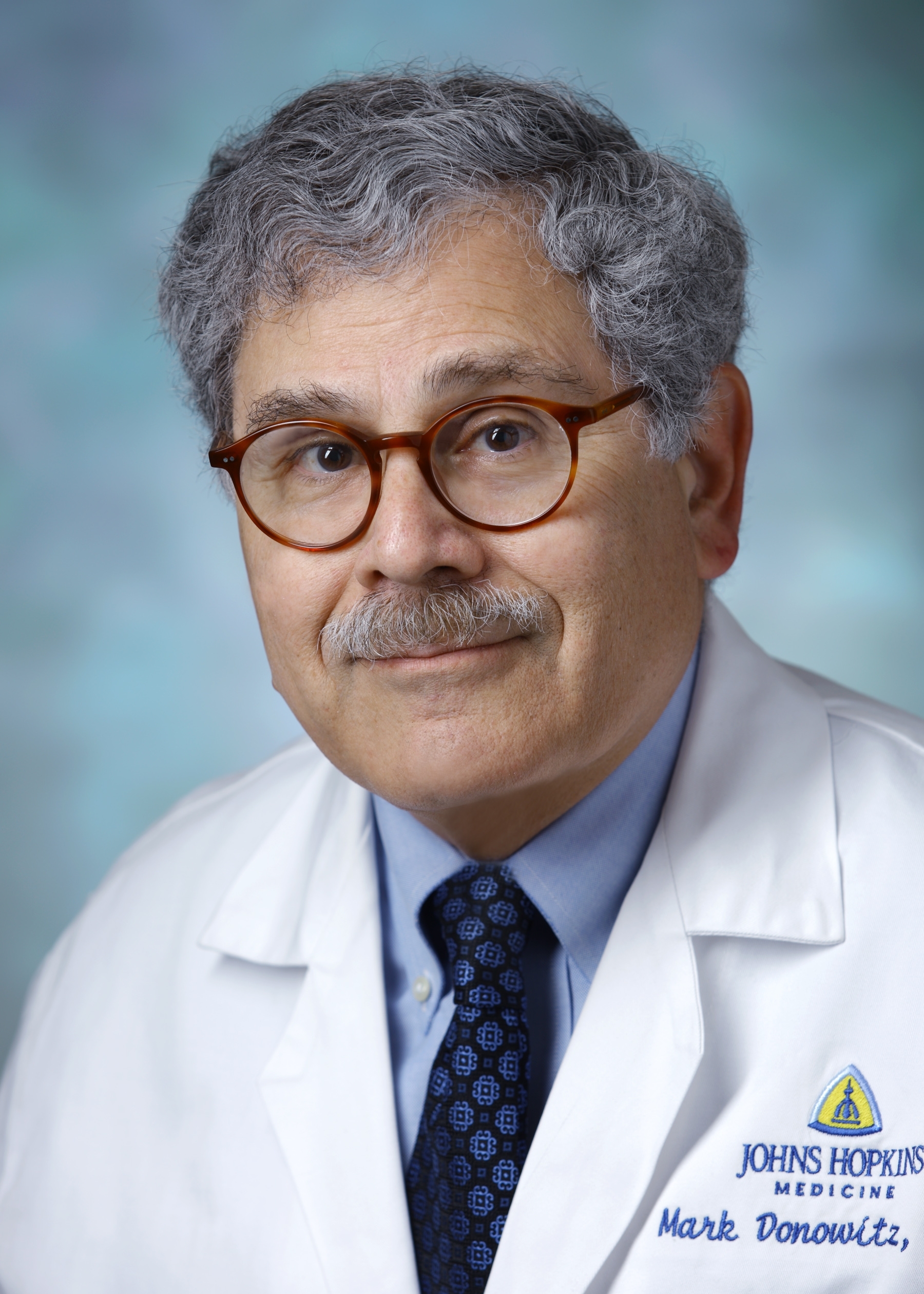
Mark Donowitz
Chief, GI Division, The Johns Hopkins University School of Medicine
Dr. Mark Donowitz, MD, Emeritus Professor at The Johns Hopkins University School of Medicine. He is a scientist, GI clinician and administrator. His scientific focus has been regulation of intestinal Na+ absorption in normal digestive physiology and abnormalities that contribute to diarrheal diseases and use of that information to develop drug therapy for diarrheal diseases. His research group was the first to recognize the mammalian Na+/H+ exchanger (NHE) gene family, to clone the epithelial isoforms, NHE3 and NHE2, and to trace the evolutionary development of this gene family. He is a Past President of the American Gastroenterological Association (AGA) and served as President of the AGA Gastroenterology-Research Group. He has received the Distinguished Achievement Award and as well as the Davenport Memorial Prize from the American Physiology Society, the Career Achievement Award in Basic Science in Gastroenterology from the American Gastroenterological Association, is a Fellow of the American Association for the Advancement of Science, and a member of the American Society of Clinical Investigator and the Association of American Physicians.
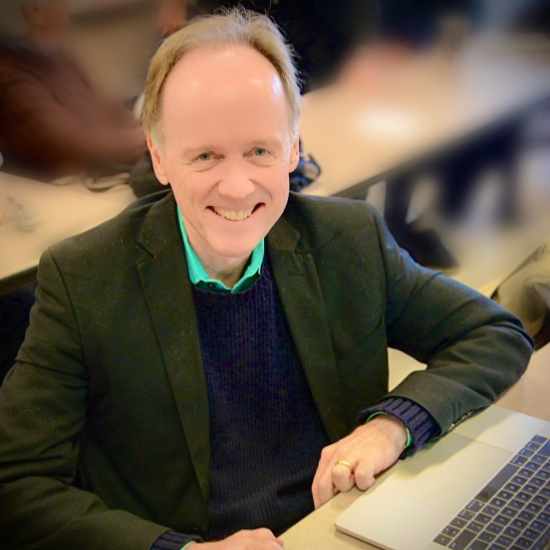
James Allen Fill
Professor Emeritus, Applied Mathematics and Statistics; Professor, Computer Science (secondary appointment); PhD, University of Chicago
Prof. Jim Fill received his bachelor’s degree with a double major in mathematics and statistics from the University of Illinois in 1976. He then earned a master’s degree and PhD in statistics from the University of Chicago in 1979 and 1980, respectively. Fill worked as an assistant professor of statistics at Stanford University before joining the Whiting School of Engineering faculty in 1988 and has held visiting positions at the University of Chicago, MIT, and Microsoft Research.
Fill’s research focuses on probability and stochastic processes (especially concerning Markov chains and multivariate records), with work lying at the interface with theoretical computer science (especially concerning the analysis of algorithms).
Fill is a Fellow of the American Mathematical Society and of the Institute of Mathematical Statistics. He also is the long-standing editor-in-chief of the Journal of Theoretical Probability and has been an associate editor for the Annals of Applied Probability, the Electronic Journal of Probability, and Electronic Communications in Probability. Fill is a four-time recipient of the Professor Joel Dean Award for Excellence in Teaching for the Department of Applied Mathematics and Statistics at Johns Hopkins.
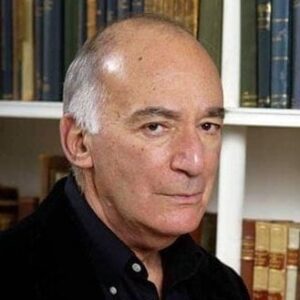
Michael Fried
J.R. Herbert Boone Professor of Humanities and the History of Art; PhD, Harvard University
B.A. Princeton, 1959. Rhodes Scholarship to Merton College, Oxford, 1959-61. Ph.D., History of Art, Harvard University, 1969. Assistant Professor and Associate Professor, History of Art, Harvard University, 1868-75. Professor, Humanities Center and History of Art, Johns Hopkins University, 1975-2017. Numerous books including Absorption and Theatricality: Painting and Beholder in the Age of Diderot, Art and Objecthood: Essays and Reviews, Manet’s Modernism, The Moment of Caravaggio, What Was Literary Impressionism?, French Suite: A Book of Essays, and others. Four books of poems, most recently Promesse du Bonheur. Delivered Andrew W. Mellon Lectures in the Fine Arts, 2002 (on Caravaggio). Member American Philosophical Society. Corres–ponding member British Academy. Member of the Ordre des Arts et Lettres.
Current Interests: Art Criticism. Art History, Poetry, Literature
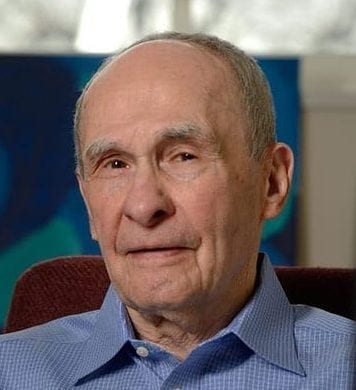
Louis Galambos
Professor Emeritus, History; PhD, Yale University
Louis Galambos is a Research Professor in History. He was formally a Professor of History and Editor of the Papers of Dwight David Eisenhower. He received his PhD from Yale University (1960) and has been a Fellow at the Harvard Business School, the Woodrow Wilson Center, the Davis Center (Princeton University), the Guggenheim Foundation, and the Library of Congress. His primary publications are in American business and economic history and the history of global public health since World War II. He is currently writing a book on “Entrepreneurship & American Capitalism: From Sir Walter Raleigh to Estee Lauder, Reginald Lewis, and Jeff Bezos.
Current Interests: Entrepreneurship, American Capitalism, Modern U.S. Political History, Global Public Health, the Pharmaceutical Industry
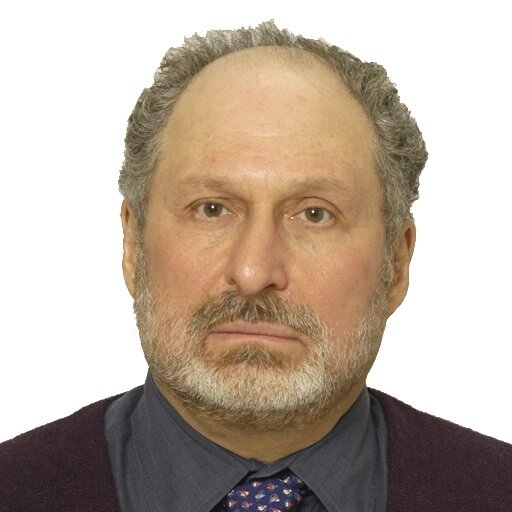
Mark Gersovitz
Professor of Economics
Mark Gersovitz was educated at McGill (B.A.) and Yale (Ph.D., economics). Among other positions, he was Senior Research Scientist at Princeton and Professor of Economics at Michigan, Ann Arbor before Hopkins. He has been advisor to the World Bank, the IMF, the UN, the Asian Development Bank and other governmental institutions and traveled professionally throughout Africa, Asia and the Middle East. He researches the economics of poor countries including: debt repudiation, expropriation; savings; public finance; agriculture and commodity markets; internal migration; health economics and the epidemiology of infectious diseases; political violence including austerity and commodity price riots and civil war.
Current Interests: Political violence, Foreign investors, Internal migration.
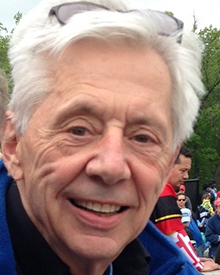
Michael Guarnieri
Research Associate; Emeritus Faculty
Trained as a chemist, Michael Guarnieri came to Johns Hopkins in 1968 as a fellow in physiological chemistry. Appointed to the new Department of Neurology in 1970 to develop its research programs, he invented the first molecular test for multiple sclerosis. He left Johns Hopkins in 1975 to commercialize diagnostic tests for biotech firms. In 1985, he returned to Johns Hopkins to work in pharmacology, pathology and, since 1995, pediatric neurosurgery. His work involved biomarkers for neurodegenerative syndromes, pediatric neuro-oncology, epilepsy surgery, clinical outcomes in achondroplastic populations, and the chemistry of delivery systems for long-acting analgesia. From 1995 to 2005, he worked with the American Chemical Society on safety systems for injury control. He continues to consult for government and industry in the science of harm reduction. He has founded drug companies to commercialize long-acting, post-surgical analgesia for veterinary medicine, and for nondivertible opiate analgesia for outpatient surgeries.
Guarnieri’s current work includes safety research for injury control in high-energy environments. He is working with Johns Hopkins Technology Ventures to commercialize veterinary and human drugs.
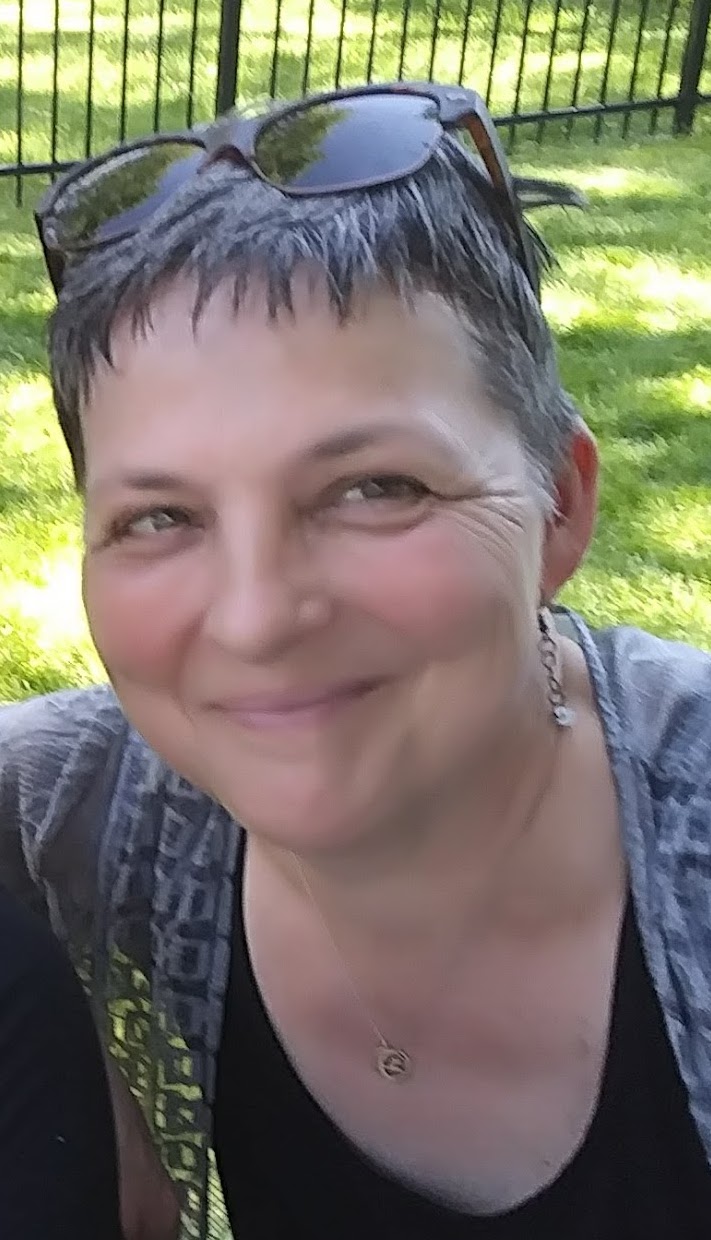
Marta Hanson
Retired Associate Professor, Department of the History of Medicine, Johns Hopkins Medicine; Affilliate Scholar, Max Planck Institute for the History of Science, Berlin, Germany
Marta Hanson received her PhD in the History and Sociology of Science Department at the University of Pennsylvania (1997). She publishes widely on the history of medicine in China, public health in East Asia, and connected early modern Sino-European medical history. She was Assistant Professor of Late Imperial Chinese history at the University of California, San Diego (1997-2004), Associate Professor of East Asian medical history in the History of Medicine Department, Johns Hopkins University (2004-2021), and President of the International Society for the History of East Asian Science, Technology, and Medicine (ISHEASTM, 2015-2019). She is now an independent scholar, the Vice-President of the International Society for the Critical Study of Divination (2023-), and an affiliate at the Max Planck Institute for the History of Science (Max-Plank-Institut für Wissenschafts-geschichte) in Berlin. She was Senior Co-editor of Asian Medicine: the Journal of the International Association of the Study of Traditional Asian Medicine (2012-2017). Her first book is Speaking of Epidemics in Chinese Medicine: Disease andthe Geographic Imagination in Late Imperial China (Routledge, 2011). Her current book manuscript, Grasping Heaven and Earth: The Mind in Hand in Chinese Medicine, examines how premodern Chinese healers used their hands to think with, diagnose, treat, and heal. Within cross-cultural medical history, she has co-authored with Gianna Pomata (early modern European historian) several publications related to the Specimen Medicinæ Sinicæ (1682), the first translation into Latin of Chinese medical texts. They are working on a grounded global microhistory of 17th-century Sino-European medical exchange.

Richard Conn Henry
Professor of Physics and Astronomy;
PhD, Princeton University
Dick Henry joined the department in 1968 as its first astronomer. He is a member of the Principal Professional Staff, Johns Hopkins Applied Physics Laboratory; and a member of the JHU Center for Astrophysical Sciences. Since 1991, Henry has also served as director, Maryland Space Grant Consortium Observatory, which is located atop the Bloomberg Center for Physics and Astronomy, and which houses the Morris W. Offit telescope, a fine half-meter reflector.

Michael Johnson
Professor Emeritus, History; PhD, Stanford University
Stanford PhD. Professor of history, Johns Hopkins 1994-2014; University of California, Irvine, 1971-94. Published and taught United States history, especially the social and political history of the late eighteenth and nineteenth century South, including slavery, free people of color, the Civil War, and related topics. Directed or co-directed 33 completed PhD dissertations; served on committees of 44 additional completed PhD dissertations. Fellowships include awards from the National Endowment for the Humanities, American Council of Learned Societies, Center for Advanced Study in the Behavioral Sciences, Huntington Library Times Mirror Foundation Distinguished Research Fellow.
Current Interests: Continued research and publication in United States history.
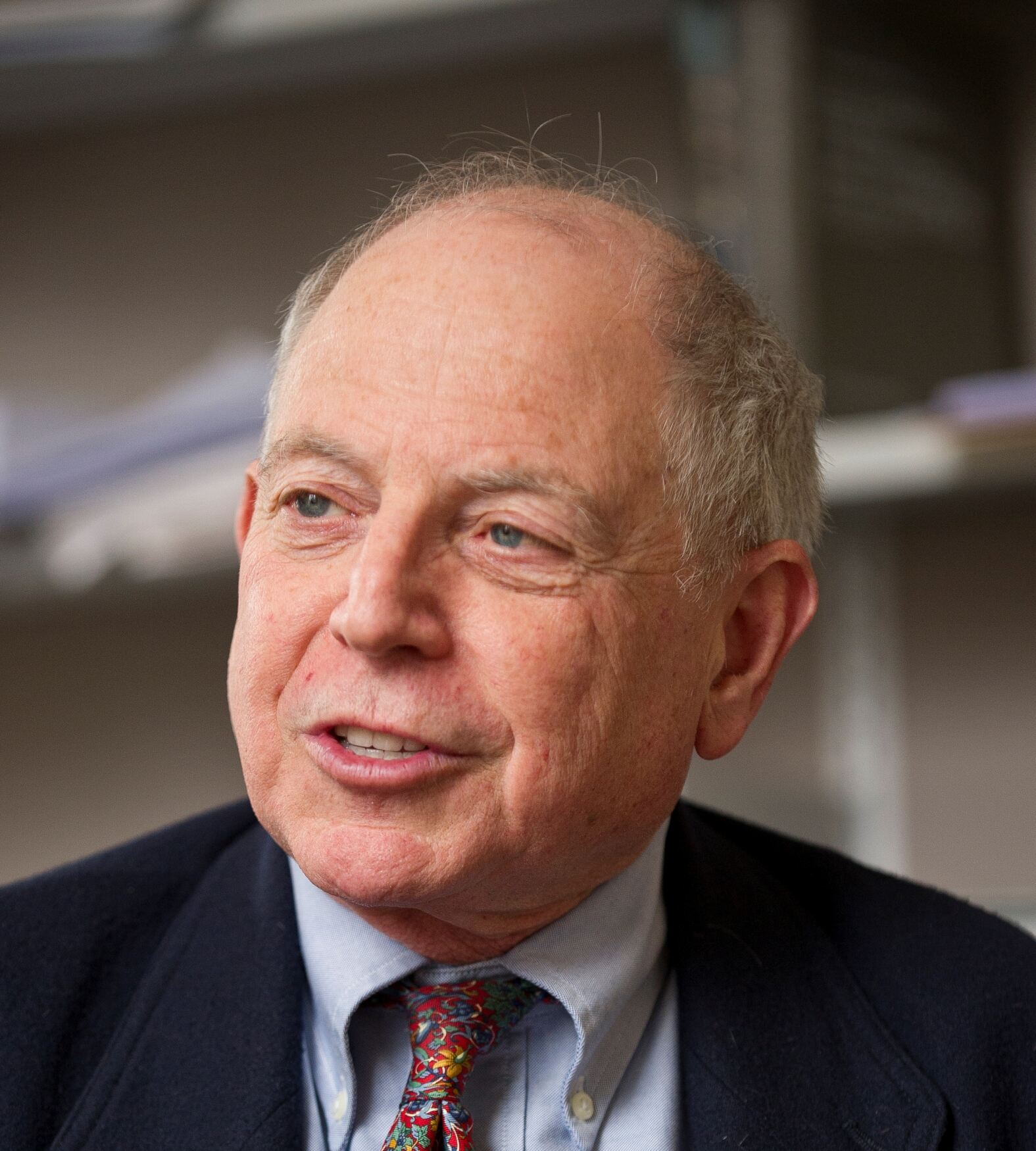
Richard L. Kagan
Arthur O. Lovejoy Professor Emeritus, History; PhD, Cambridge University
Upon earning a Ph.D. in History from Cambridge University in 1968, Kagan taught at Indiana University before joining the Hopkins faculty in 1972. Specializing in the history of Spain and its overseas empire, tother with he is the author or editor of a dozen books and more than 100 articles and essays. His most recent publications examine the place of Hispanic culture in the United States. His next book, The Inquisition’s Inquisitor: Henry Charles Lea of Philadelphia (University of Pennsylvania Press) will be released in 2024.
Current Interests: Research, Writing, Professional service on various organizations
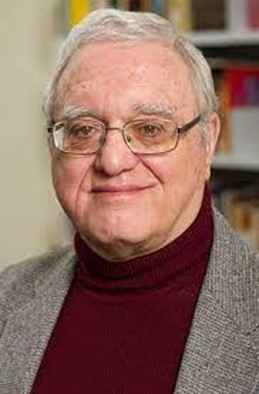
Robert Kargon
Willis K. Shepard Professor Emeritus, History of Science; PhD, Cornell
Prof. Kargon received his undergraduate and master’s degrees in physics from Duke and Yale, and his Ph.D. in history from Cornell. After a year at the University of Illinois, he came to Johns Hopkins in 1965, rising from assistant professor to professor. His books include Atomism in England from Hariot to Newton (1966), Science in Victorian Manchester: Enterprise and Expertise (1978), and The Rise of Robert Millikan: a Life in American Science (1981) among others. His most recent book, with co-authors, is World’s Fairs on the Eve of War: Science, Technology and Modernity 1937-1942 (2015). His ongoing interest is in the relation of science and technology to economic and social modernity, and he plans to continue these efforts in retirement.
Current Interests: Science, Technology, Modernity, Teaching, Public lecturing research
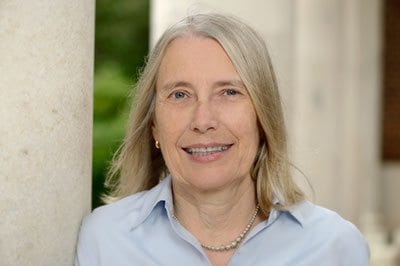
Margaret Keck
Professor Emerita, Political Science; PhD, Columbia University
Margaret Keck taught comparative politics, Latin American Politics, and environmental politics. She is the author or co-author of numerous articles and four prize-winning books, including Practical Authority: Agency and Institutional Change in Brazilian Water Politics (Oxford 2013), with Rebecca Abers; Greening Brazil: Environmental Activism in State and Society (Duke 2007), with Kathryn Hochstetler; Activists beyond Borders: Advocacy Networks in International Politics (Cornell 1998), with Kathryn Sikkink; and The Workers’ Party and Democratization in Brazil (Yale 1992). She has been doing research in Brazil since 1982.
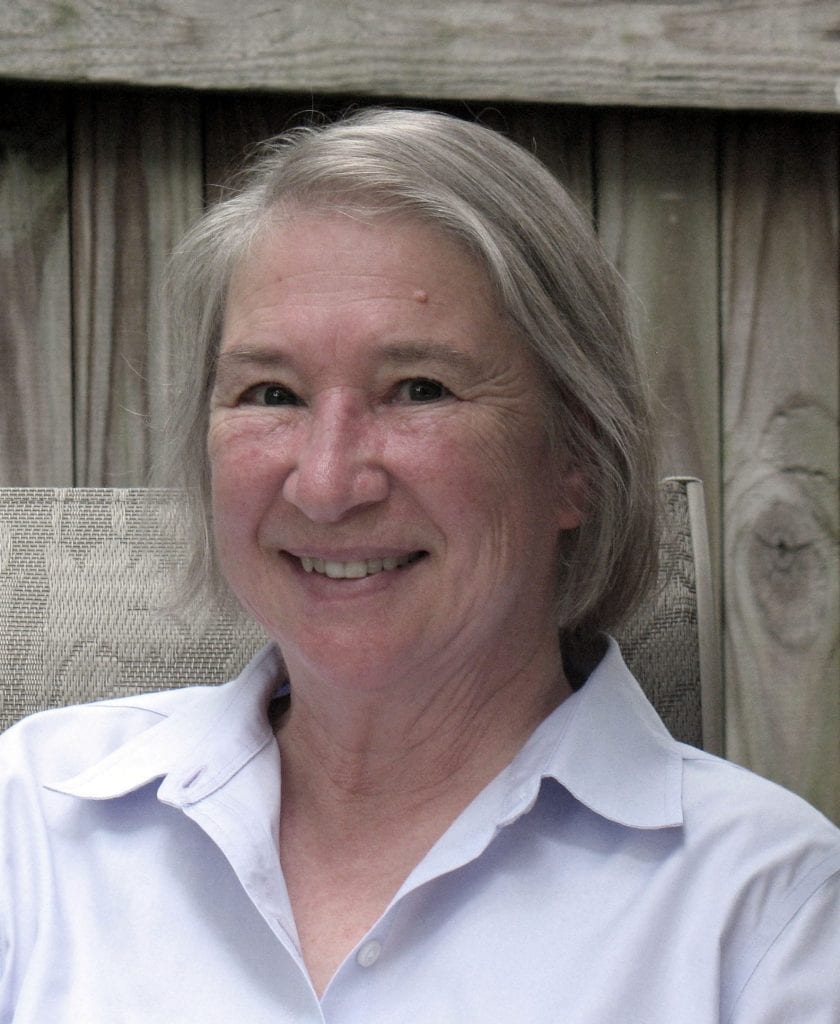
Sharon E. Kingsland
Professor Emerita, History of Science; PhD, University of Toronto
Sharon Kingsland (PhD 1981, University of Toronto) was on the faculty of the History of Science and Technology Department at Johns Hopkins University from 1981 to 2020. She studies the history of modern life sciences, especially ecology, and has published Modeling Nature: Episodes in the History of Population Ecology (1984; 2nd ed. 1995); The Evolution of American Ecology, 1890-2000 (2005), and A Lab for All Seasons: The Laboratory Revolution in Modern Botany and the Rise of Physiological Plant Ecology (2023). She has co-edited volumes on the history of biology and agriculture, and on long-term ecological research.
Current Interests: History of biology, Ecological science, Plant ‘intelligence’ debates, Botanical science and popularization.

Franklin W. Knight
Leonard and Helen R. Stulman Professor Emeritus, History; PhD, University of Wisconsin Madison
Franklin W. Knight is Leonard and Helen R. Stulman Professor of History Emeritus, Academy Professor, and currently co-Chair of the Johns Hopkins University Academy of Scholars on the Homewood Campus. Born in Jamaica, Knight has higher academic degrees from the University of the West Indies, Mona and the University of Wisconsin at Madison. He joined the Johns Hopkins faculty in 1973. He has been honored by several international associations and in 2013 won the Gold Musgrave Medal from the Institute of Jamaica.
Current Interests | Research, Writing, Lecturing, Consulting

Yuan C. Lee
Professor of Biology; PhD, University of Iowa
Dr. Yuan C. Lee graduated from National Taiwan Univ. (Agri. Chem) and obtained a PhD (Biochemistry) at Univ. of Iowa (Iowa City). After 3-yr postdoctoral training at Biochem. Dept. (under Prof. Clinton E. Ballou, he joined the Biology Dept. of Johns Hopkins Univ., as an Assistant Professor (1965). After Assist. Prof (1970), he became a Prof (2014-20). He joined the Academy in 2021. Although his main interest is in Glycobiology, especially disease-related problems. he promoted synthetic glycoproteins, coined “Neoglycoproteins”, through which he discovered the “Glycoside-clustering effect”. For example, mammalian hepatocytes bind tri-branched Galactose terminal 103-fold stronger than a single galactose.
Current Interests: PATHOGEN-targeting oligosaccharide derivatives
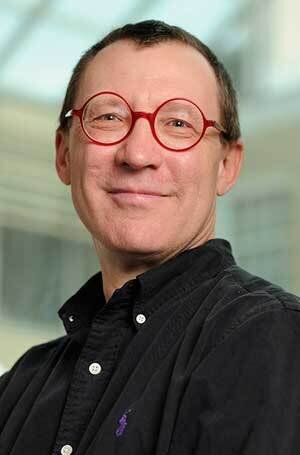
Stuart W. Leslie
Professor of History of Science, Medicine, and Technology
Professor Leslie spent four decades at Johns Hopkins, primarily studying the Cold War in the US and globally. He twice won the George Owen Award for undergraduate teaching, and supervised 19 PhD dissertations. He served in a number of leadership roles for the Society of the History of Technology and the History of Science Society. As a founding trustee of the D.W. Kim Foundation he has supported the history of modern East Asian science, technology, and medicine. Most recently, he has studied architecture and urban geography, focusing on the aerospace industry in Southern California, and has written extensively on university and hospital design in Pakistan, Bangladesh, and East and West Africa.
Current Interests: Faculty Mentoring, History of Johns Hopkins University, History of underrepresented groups in the history of science, technology and medicine
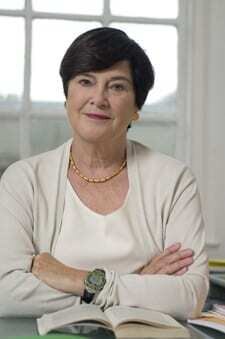
Ruth Leys
Henry Wiesenfeld Professor Emerita of the Humanities; PhD, Harvard University
Ruth Leys is a historian of science who specializes in the 20th and 21st-century history of the cognitive-, neuro- and psychological sciences. Published works include Trauma: A Genealogy (2000), From Guilt to Shame: Auschwitz and After (2007); The Ascent of Affect: Genealogy and Critique (2017); and Newborn Imitation: The Stakes of an Idea (2020). She has just completed a new book, Fast Thinking: A Critical History of Research on Priming and Automatic Action, under consideration at the University of Chicago Press. These publications and related works reflect her long-standing engagement with problems associated with attempts to naturalize the properties of the mind, including claims regarding the information-processing character of the brain/mind.
Current Interests: The genealogy of the concept of “implicit prejudice”, the challenges involved in designing “affective AI” systems.
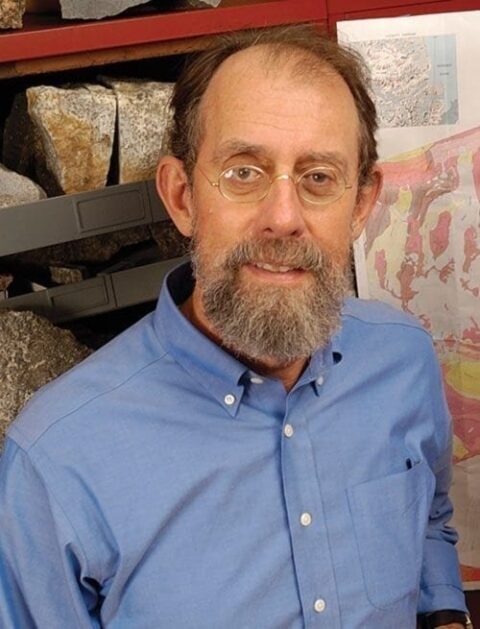
Bruce D. Marsh
Professor Emeritus, Earth and Planetary Sciences; PhD, University of California, Berkeley
Bruce Marsh came to Hopkins in 1974 from U.C. Berkeley as Assistant Professor. As a geologist he has spent his career studying planetary volcanic and magmatic processes through the combined application of field mapping, laboratory modelling, and theory. Building a school of thought centered on a holistic approach to understanding all facets of the origin and evolution of magma, training 32 Ph.D.’s., and working globally. He is a Fellow of the American Geophysical Union, Geological Society of America, Mineralogical Society of America, and the Royal Astronomical Society, and has received some awards. (See his TEDx lecture: “Volcanoes and Wine Tears”)
Current Interests: Geothermal Energy, Polar Exploration, Academy Leadership, Scholarship, Faculty Mentoring
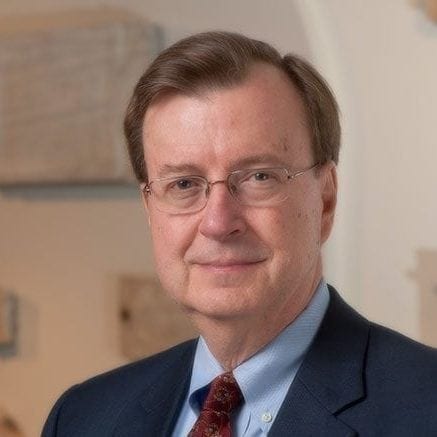
P. Kyle McCarter, Jr.
William Foxwell Albright Professor Emeritus, Near Eastern Studies; PhD, Harvard University
P. Kyle McCarter received his B.A. in English from the University of Oklahoma in 1967 and his Ph.D. in Near Eastern Languages and Literatures from Harvard University in 1974. He was Assistant Professor, Associate Professor and Professor in the Department of Religious Studies of the University of Virginia from 1974 to 1985. In 1985 he became the William Foxwell Albright Professor of Ancient Near Eastern Studies in the Department of Near Eastern Studies at the Johns Hopkins University, where he served until his retirement in 2018.
Current Interests: Researching the evolution of the alphabet, the close interpretation and reanalysis of biblical prose narrative, and ancient medicine.
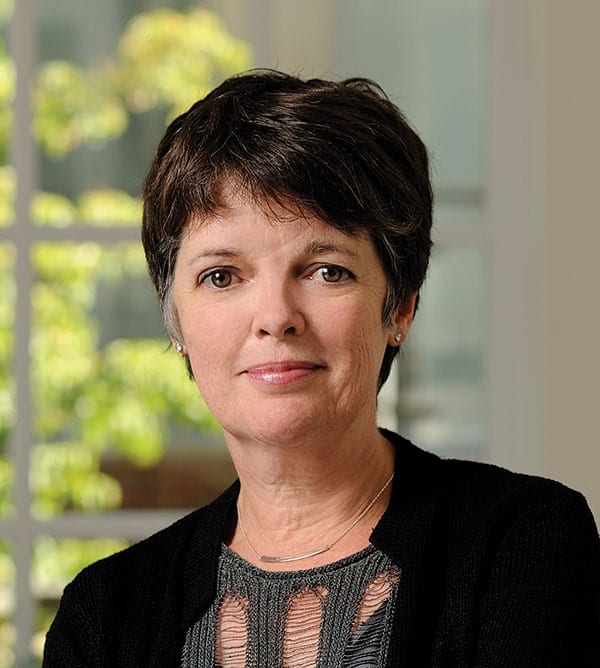
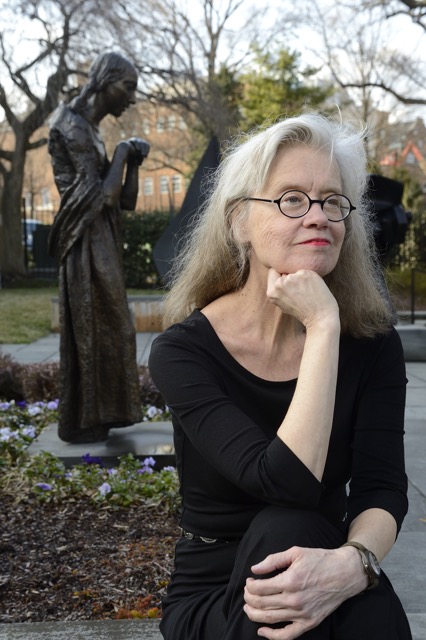
Jean McGarry
Elliott Coleman Professor of The Writing Seminars
Jean McGarry, formerly Elliott Coleman Professor, is a long-time faculty member in The Writing Seminars, with several stints as department chair and co-chair. She has an AB from Harvard and an MA from Johns Hopkins, and has published ten works of fiction, both novels and story collections. She’s recently completed a new story collection, and a memoir, entitled Herself and Others. At present, she’s writing a new novel, as yet untitled. She’s a graduate of the Baltimore-Washington Psychoanalytic Institute, where she was an academic associate.
Current Interests: Undergraduate advising, Teaching, Mentoring, Presenting, Writing.
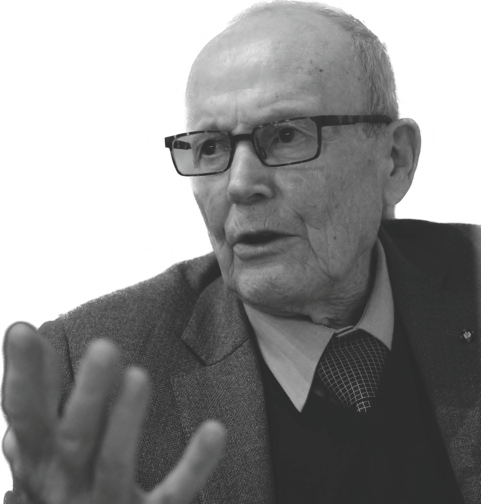
Stephen G. Nichols
James M. Beall Professor of French and Humanities
Nichols is a Fellow of the American Academy of Arts and Sciences, a Fellow of the Medieval Academy of America, an Honorary Senior Fellow of the School of Criticism and Theory (which he directed from 1996-2001). He holds an honorary Docteur ès Lettres (University of Geneva), is an Officier de l’Ordre des Arts et Lettres (France), and received The Alexander von Humboldt Foundation Research Prize in 2008, 2015, and 2023. A Yale University Ph.D. in Comparative Literature, he has written or edited some 28 books, primarily regarding the Middle Ages, including Romanesque Signs: Early Medieval Narrative and Iconography, which received the James Russell Lowell Prize for an outstanding book from the Modern Language Association. Nichols served as Interim Dean of the Johns Hopkins Libraries in 1994-95. He chaired the French Department, Romance Languages, and German and Romance Languages from 1996-2010. He co-directs JHU’s Digital Library of Medieval Manuscripts and co-founded the journal Digital Philology, (Project Muse, JHU Press).
Current Interests: Teaching students to read archival handwritten documents; leading adult reading groups; interpreting medieval history and literature for an informed public.
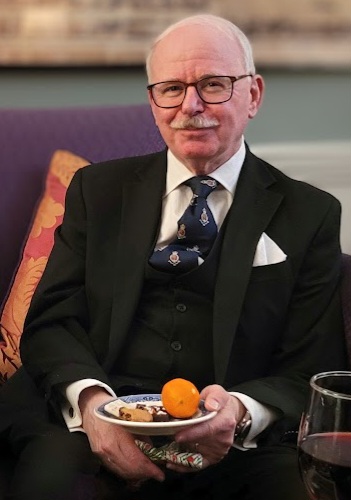
Stephen Oppenheimer
Faculty, Johns Hopkins University School of Medicine; PhD, Oxford University
Dr. Oppenheimer’s research focuses on the intricate connections between the brain and the heart. His research explores the cortical representation of the heart, with particular emphasis on repolarization, the generation of dysrhythmias, and the role of the insular cortex in pain and cardiovascular autonomic convergence. He has contributed significantly to the understanding of conditions such as sudden cardiac death, Takotsubo Syndrome, cerebrogenic cardiomyopathy, and the neurobiology and cardiac consequences of cerebral infarction. His investigations also delve into the neurophysiology and neuroanatomy of insulofugal and insulopetal pathways.
Dr. Oppenheimer is actively involved in editorial and peer review roles for leading medical journals, including Stroke, American Heart Journal, Circulation, New England Journal of Medicine, Journal of Neurology, Neurosurgery, and Psychiatry (JNNP), Epilepsia, Brain, Neurology, and Annals of Neurology. Dr. Oppenheimer has been a chair and member of prestigious study sections, including those for the National Institutes of Health Center for Scientific Review (NIH-CSR), the American Institute of Biological Sciences, the Department of Defense, and the American Heart Foundation.
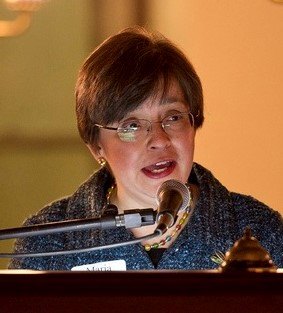
Maria M. Portuondo
Professor of History of Science and Technology
Professor Portuondo earned a PhD in history of science and technology after a career as an electrical engineer. Her interests include early modern cosmography, technology and natural philosophy. She has published two prizewinning books: Secret Science: Spanish Cosmography and the New World (UCP, 2009) and The Spanish Disquiet: The Biblical Natural Philosophy or Benito Arias Montano (UCP, 2019). Her teaching explored a number of general themes in the history of science, such as epistemological issues of knowledge production, methodological aspects of scientific practice, intellectual history, the role of science in an imperial context, the relationship between science, technology and slavery, and science in the context of territorial exploration.
Current Interests: The history of technology in the colonial Caribbean, Mentoring, refereeing books and articles, and serving on advisory boards of several journals and programs.

George D. Rose
Krieger-Eisenhower Professor Emeritus, Biophysics; PhD, Oregon State University
George Rose holds a PhD from Oregon State University. Following a post-doc at the University of Delaware, he took a faculty position at Penn State University Medical Center, and, stopping at a few ports along the way, arrived at JHU in 1994. In 2018, he developed and taught an undergraduate course – “Thinking about thinking” – at Bard College. He is actively engaged in research on protein folding.
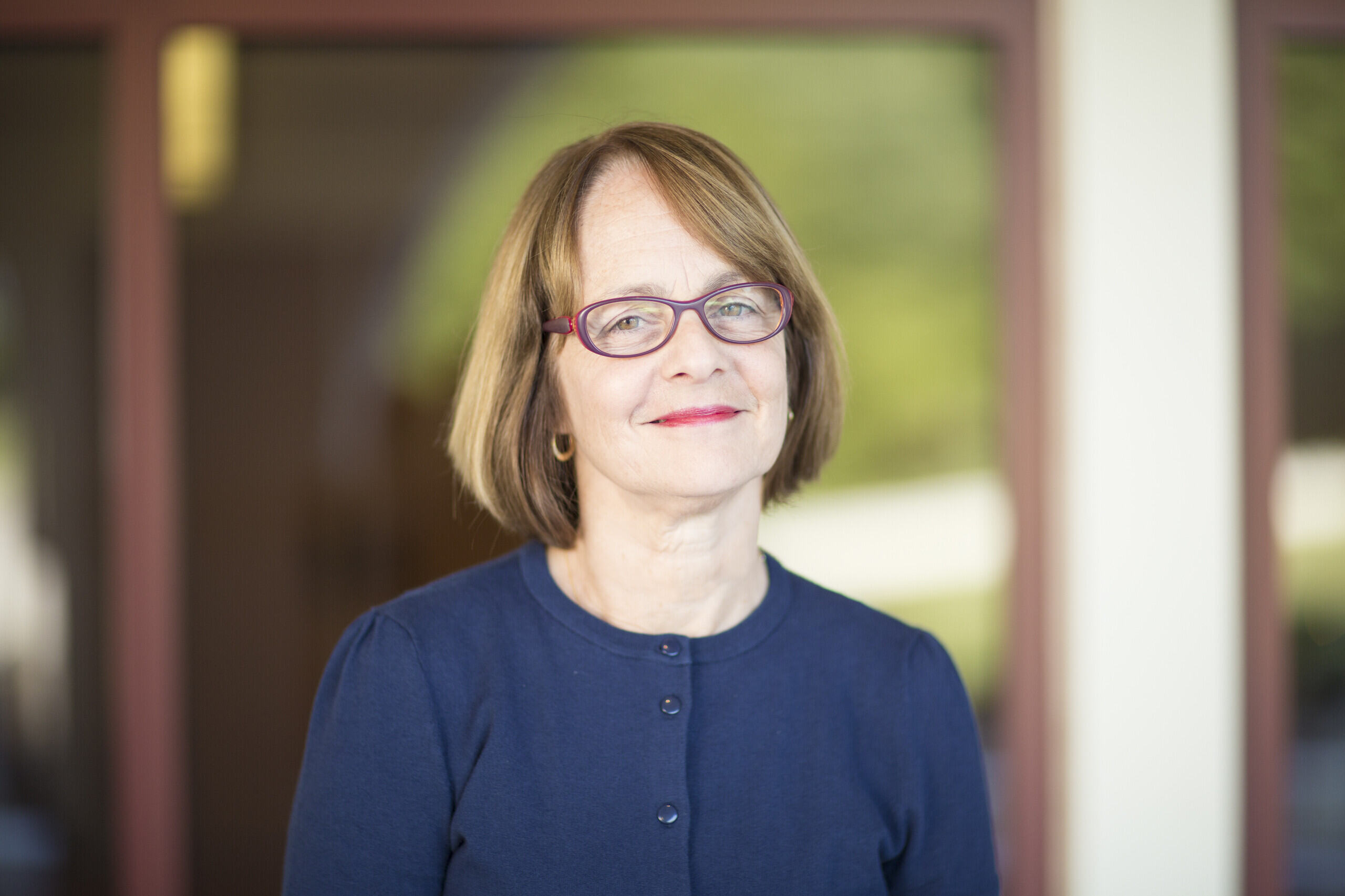
Mary Jo Salter
Krieger-Eisenhower Professor of The Writing Seminars
Mary Jo Salter received her B.A. cum laude in English from Harvard, and her M.A. First Class in English from Cambridge. An honorary Doctor of Letters of Amherst College, she spent many years teaching at Mount Holyoke College before coming to Johns Hopkins’s Writing Seminars department in 2006, retiring in 2022. Knopf has published all nine of her collections of poetry, most recently Zoom Rooms (2022). She has authored two children’s books, including the forthcoming Leena Learns to Talk (Minerva, 2024). Co-editor of three editions of The Norton Anthology of Poetry, she is a member of the American Academy of Arts and Sciences.
Current Interests: Writing, giving talks/readings, mentoring, serving on the council of the Association of Literary Scholars, Critics, and Writers (ALSCW), serving as literary executor for two poets.
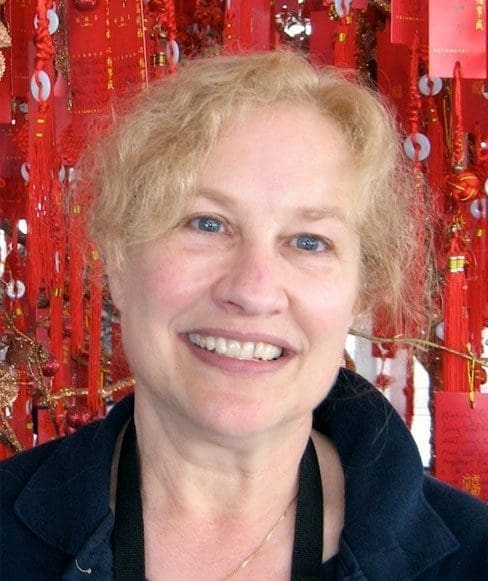
Erica Schoenberger
Professor Emerita of Geography and Anthropology; PhD University of California at Berkeley
Erica Schoenberger was educated at Stanford University and the University of California at Berkeley. She came to Hopkins as an assistant professor in the Department of Geography and Environmental Engineering, a department founded on a commitment to interdisciplinary research and education. She has a joint appointment in the Department of Anthropology and she has collaborated in both teaching and research with historians, historians of science, environmental engineers, and systems analysts. Her early work investigated the connections among corporate strategy, corporate culture and the sense of identity in corporate leaders; it resulted in the book The Cultural Crisis of the Firm. Her second book, Nature, Choice and Social Power explored the question of why we don’t act in our own best interests in the environment even when we know what to do through the histories of gold and gold mining, the internal combustion engine, suburban sprawl and Los Angeles. She is currently working on a book, Money, Monks and Monarchs, that challenges the conventional wisdom about the origins of money and markets. This research was supported by a Guggenheim Fellowship.
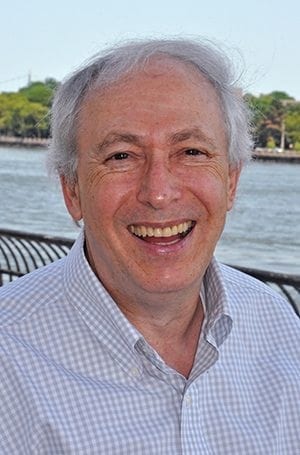
H. Alan Shapiro
W. H. Collins Vickers Professor Emeritus, Archaeology; PhD, Princeton University
Alan Shapiro is a classical archaeologist who holds degrees in Greek and archaeology from Swarthmore College, UC Berkeley, and Princeton. He came to Hopkins in 1997 after jobs at Columbia, Tulane, and Canterbury (New Zealand), as well as visiting positions in Munich, Cape Town, Athens, and Shanghai. He was most recently Dietrich von Bothmer Research Scholar at the Metropolitan Museum of Art from 2020 to 2023. He has published widely on Greek art, history, and religion of the Archaic and Classical periods and organized exhibition of Greek art in New Orleans, Christchurch, New Zealand, and New York.
Current Interests: Greece, Athens, Archaeology, Mythology, Ceramics, Heroes, Theseus
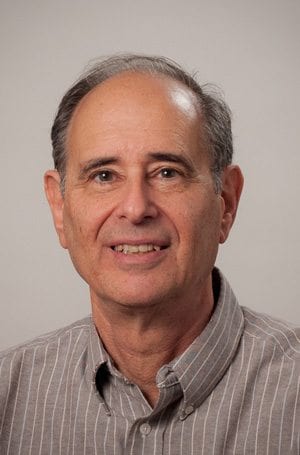
Bernard Shiffman
Professor Emeritus, Mathematics; PhD, University of California, Berkeley
Bernard Shiffman received a B.S. from MIT in 1964 and a Ph.D. in mathematics from UC-Berkeley in 1968. Before coming to Hopkins in 1973, he held post-doctoral positions at MIT and Yale. He received an Alfred P. Sloan Research Fellowship in 1973 and is a Fellow of the American Mathematical Society. At Hopkins, he served twice as Chair of the Mathematics Department and served on the Faculty Editorial Board of the Hopkins Press and on the Homewood Academic Council. He was Editor-in-Chief of the American Journal of Mathematics from 1993 to 2005. His research is in complex geometry and mathematical analysis.
Current Interests: Surveys and publications on solutions of random functions and on geometric packing arrangements in macromolecular crystals
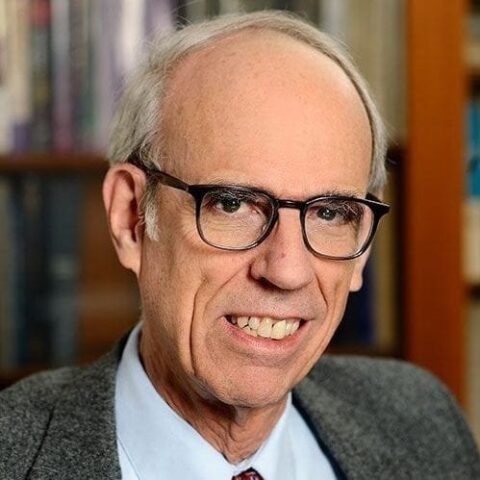
Harris J. Silverstone
Professor Emeritus, Chemistry; PhD, California Institute of Technology
AB Harvard 1960; PhD Caltech 1964; Postdoc Yale 1964; Hopkins 1965-2018; Professor Emeritus 2018-present.
Professor Silverstone most recently invented the “educated match” method, which generalizes the Borel-Padé (and Padé approximant) method, to sum divergent (and convergent) power series, which occur in quantum chemistry and physics; an appropriate approximate function is constructed whose own series matches the first 2n terms.
His earlier work treated the electric-field tunneling-ionization of the hydrogen atom, perturbation of hydrogen, general perturbation theory, the “JWKB” connection formula, convergence of the “configuration interaction” expansion, the long-distance behavior of “Hartree-Fock” orbitals, how electrons avoid each other in molecules, and quantum chemical calculations via Fourier transforms.
Current Interests: Summation of divergent power series, Molecular electronic structure, Baking breads, Scholarly lectures and discussions, Meetings of the Hopkins Academy
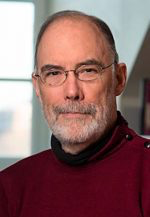
Walter Stephens
Charles S. Singleton Professor of Italian Studies, Department of Modern Languages and Literatures
B.A. Yale, 1972, French and Italian; Ph.D. Cornell, 1979, Comparative Literature; Perfezionamento in Filosofia (Ph.D.) Scuola Normale Superiore di Pisa, 1984. Teaching: Lecturer in Italian, 1978–1979, Cornell; Assistant Professor of Italian, 1981–1983, University of Washington; Assistant, Associate, Full Professor of Italian, 1983–1999, Dartmouth College (1993–1999, Paul D. Paganucci Professor); Charles S. Singleton Professor of Italian Studies, Johns Hopkins, 1999–2022. Monographic Books Published: Giants in Those Days: Folklore, Ancient History, and Nationalism 1989 (French trans., 2006, 2022); Demon Lovers: Witchcraft, Sex, and the Crisis of Belief, 2002; How Writing made Us Human, 3000 BCE to Now, 2023.
Current Interests: Teaching, Mentoring; Research: Literary Forgery; Witchcraft Theory; Italian Studies; History of Writing.
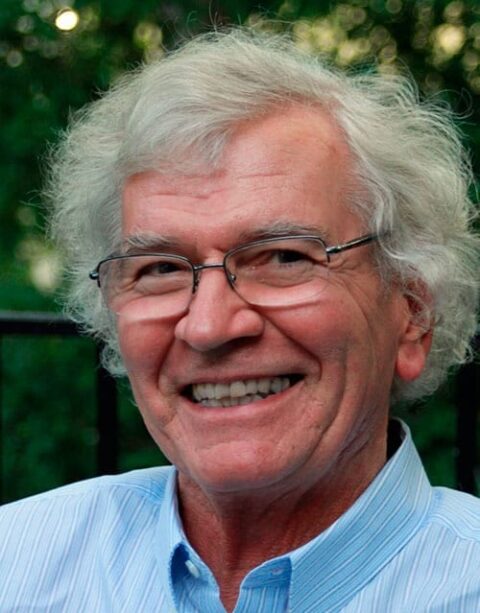
Ronald Walters
Professor Emeritus, History; PhD, University of California, Berkeley
email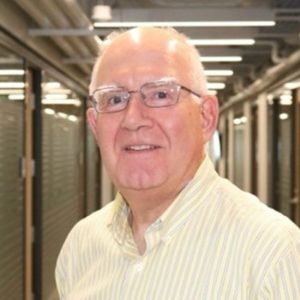
John C. Wierman
Professor Emeritus, Applied Mathematics and Statistics; PhD, University of Washington
Prof. Wierman earned his B.S. in 1971 and Ph.D. in 1976 from the University of Washington. He conducts research in probability, stochastic processes, statistics, graph theory, and combinatorics. He is an elected fellow of the Institute of Mathematical Statistics and of the Institute of Combinatorics and received the Paul Minton Service Award from the Southern Regional Council on Statistics. He served as Chair of the JHU Department of Mathematical Sciences from 1988 to 2000, and founded the Entrepreneurship & Management Minor and the Center for Leadership Education at JHU. He develops the enrollment prediction model for the JHU Office of Admissions and serves as faculty advisor for the JHU varsity women’s soccer team.
Current Interests: Undergraduate Research, Academic Advising, Editorships, Professional Society Treasurer, JHU Women’s Soccer Team Advisor, Enrollment Prediction Modeling.
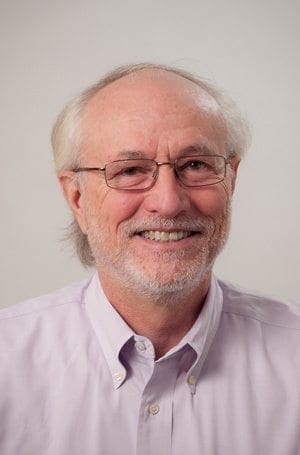
Stephen Wilson
Stephen Wilson is a Professor Emeritus of Mathematics and Education at the Johns Hopkins University. He has been Chair of the Department of Mathematics. His 1972 Ph.D. in mathematics is from M.I.T. He taught at Princeton before coming to JHU, where he was for 45 years before retiring. He has over 60 research papers in mathematics, specializing in algebraic topology, and is a Fellow of the American Mathematical Society. He spent 8 months of 2006 as the Senior Advisor for Mathematics, Office of Elementary and Secondary Education, United States Department of Education.
He has authored or coauthored nine reports
for the Fordham Institute, primarily evaluating
mathematics standards, including those for Common Core, states, and the big exams like NAEP, PISA, and TIMSS. He helped revise the Washington State K-12 mathematics standards and evaluate textbooks for the state. He has helped out with numerous smaller projects on standards, curricula, and textbooks.
In Memoriam
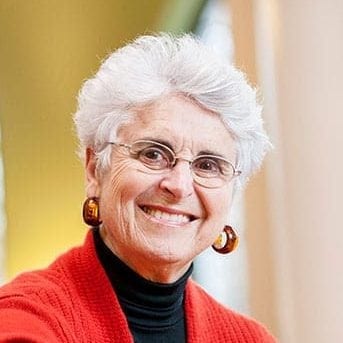
Jane Guyer
George Armstrong Kelly Professor Emerita, Anthropology
Jane I. Guyer came to Johns Hopkins from Northwestern University in 2002, having served previously on the faculties of Harvard and Boston University. Her research career has been devoted to economic transformations in West Africa, particularly the productive economy, the division of labor and the management of money.

